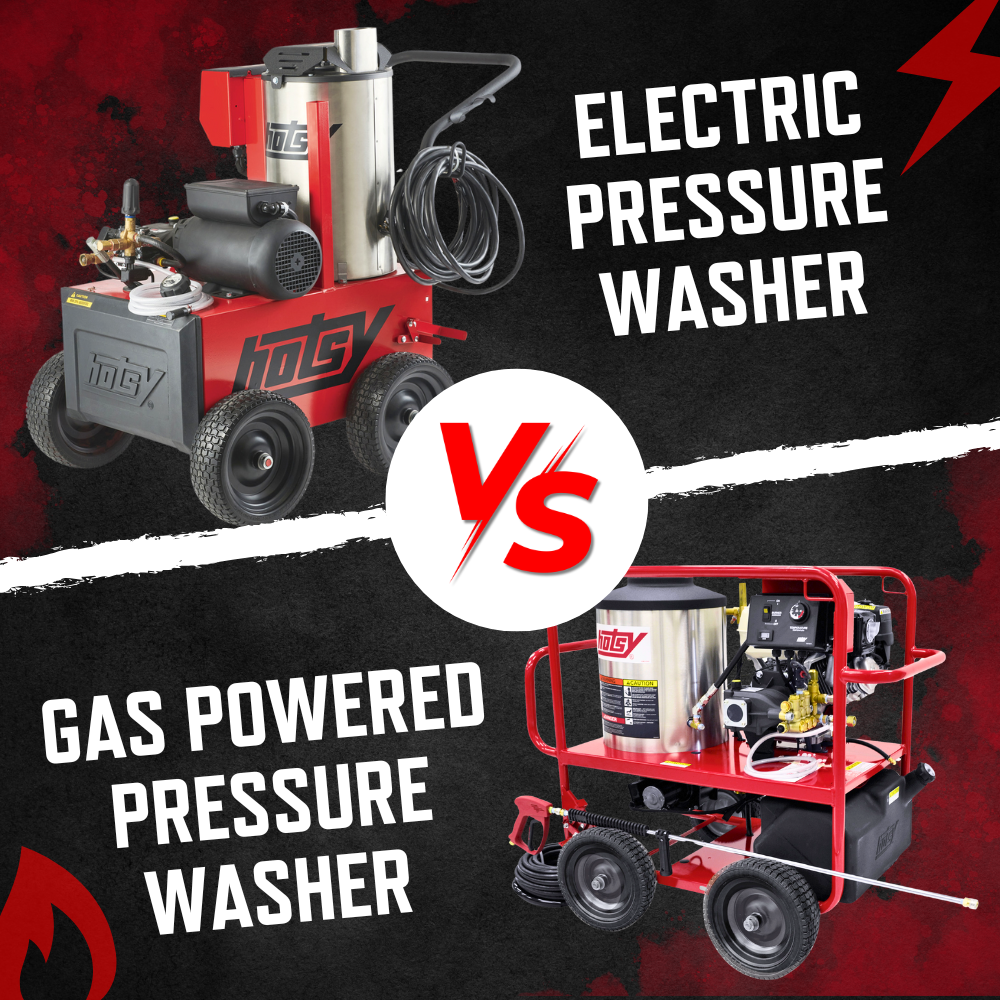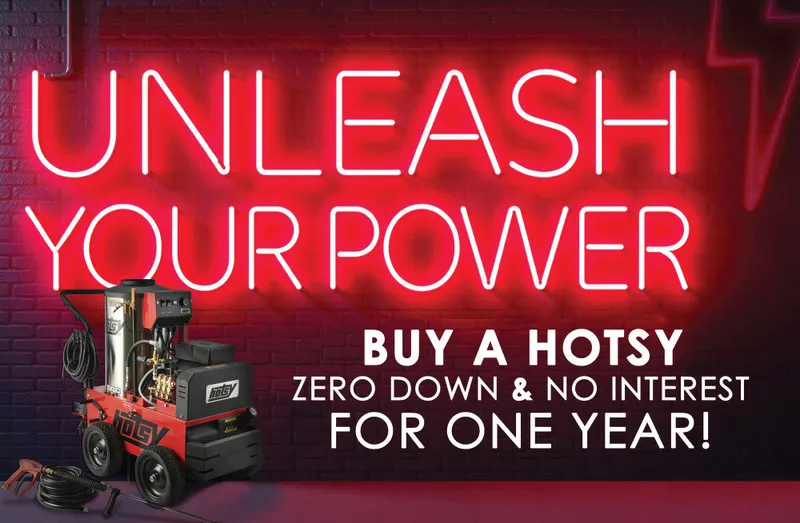
How to Choose a Pressure Washer
Choosing the right pressure washer can be daunting, with various models and features available. This guide breaks down the essential considerations, from personal vs. business use and electric vs. gas power, to hot vs. cold water and usage frequency, ensuring you select the perfect machine for your cleaning needs.
Uses Cases
Consider if this pressure washer for your home or your business.
Residential Use Cases:
- Cleaning Driveways and Sidewalks:
- Removing dirt, grime, oil stains, and moss from concrete surfaces.
- Deck and Patio Cleaning:
- Eliminating dirt, mildew, and algae from wood or composite decking.
- Vehicle Washing:
- Cleaning cars, trucks, motorcycles, and other vehicles.
- Home Exterior Cleaning:
- Removing dirt, mold, and mildew from siding, brick, and other exterior surfaces.
- Outdoor Furniture Cleaning:
- Washing away dirt and grime from patio furniture.
- Cleaning Fences:
- Removing dirt and mildew from wood or vinyl fencing.
- BBQ Grill Cleaning:
- Removing grease and grime from grills.
Commercial/Industrial Use Cases:
- Building Cleaning:
- Cleaning large building exteriors, including facades and parking garages.
- Equipment Cleaning:
- Removing grease, oil, and dirt from heavy machinery and industrial equipment.
- Vehicle Fleet Cleaning:
- Cleaning large numbers of vehicles, such as trucks or buses.
- Graffiti Removal:
- Removing unwanted graffiti from walls and other surfaces.
- Surface Preparation:
- Preparing surfaces for painting or other coatings.
- Sanitization:
- Cleaning and sanitizing areas where food is processed, or in other areas where sanitation is very important.
Electric vs Gas Powered
What you need to consider when choosing between gas and electric pressure washers.
Choosing between an electric and gas pressure washer hinges on your specific needs. Electric models excel in ease of use, requiring minimal maintenance and operating quietly, making them ideal for light to medium-duty tasks around the home. They’re also environmentally friendly, producing no exhaust fumes, and generally lighter and more portable. However, their power is limited, and their range is restricted by a power cord.
Gas pressure washers, on the other hand, offer significantly higher power, making them suitable for heavy-duty cleaning and commercial applications. Their portability is a major advantage, but they come with increased maintenance needs, louder operation, and exhaust fumes. They’re also generally heavier and more complex to start.
Ultimately, the choice depends on the tasks you’ll be tackling, how often you’ll use it, your budget, and any noise or storage constraints you might have. For occasional light cleaning, electric is often sufficient. For frequent, heavy-duty work, gas is the more robust option.

Hot Water Vs Cold Water Pressure Washers
What will you be cleaning with your pressure washer?
Choosing between hot and cold water pressure washers hinges on the nature of your cleaning tasks. Cold water units are the versatile, budget-friendly option, excelling at dislodging dirt, mud, and loose debris from surfaces like driveways and vehicles. However, they struggle with grease and oil, often requiring stronger detergents.
Hot water pressure washers, conversely, are designed for heavy-duty cleaning and sanitization. The heated water effectively dissolves oily substances and eliminates bacteria, making them essential for industrial settings and tasks involving stubborn grime. While they offer superior cleaning power and speed, they come with higher purchase and operating costs, and require fuel.

- Designed for heavy-duty cleaning and sanitization, effectively dissolving grease, oil, and eliminating bacteria, making it essential for industrial and commercial applications.
- Provides superior cleaning power, reduces the need for harsh chemicals, and speeds up cleaning times, offering efficiency and effectiveness for demanding tasks.
- Comes with a higher initial purchase and operating costs due to fuel consumption, as well as more complex maintenance requirements, and can potentially damage certain delicate surfaces with the elevated temperatures.

- Suited for general cleaning tasks like washing vehicles, patios, and driveways, effectively removing dirt, mud, and loose debris.
- Offers a more affordable initial purchase and lower maintenance costs, making it ideal for homeowners and occasional users.
- Less effective at removing grease, oil, and stubborn stains, potentially requiring stronger detergents or more aggressive cleaning methods.
How Long and How Often You’ll Use it
Will you be using it for a long period of time? How many times a week will you use it?
When choosing a pressure washer, it’s essential to consider how long and how often you’ll use it. For occasional use (a few times a year), a light-duty electric or gas model with lower PSI (1,500–2,500) is sufficient for tasks like washing cars or patios. If you need a washer regularly (weekly or multiple times a month), a medium-duty machine with an axial or triplex pump and higher PSI (2,500–3,500) is a better fit for extended use.
For daily or extended use, such as commercial or industrial cleaning, a heavy-duty pressure washer with a triplex pump, belt-drive system, and high PSI/GPM is necessary to handle continuous operation. Choosing the right model ensures efficiency and longevity—light-duty units can wear out under heavy use, while commercial models might be excessive for occasional jobs. Matching the machine to your workload guarantees the best performance and value.
Making the Right Choice
Choosing the right pressure washer depends on several key factors, including intended use, power source, water temperature, and usage frequency. Residential users typically need light to medium-duty machines for tasks like cleaning driveways, decks, and vehicles, while businesses require commercial or industrial-grade models for building exteriors, equipment cleaning, and sanitation. The choice between electric and gas models comes down to power and convenience—electric washers are quieter, lower-maintenance, and suitable for light cleaning, whereas gas washers provide higher power for heavy-duty tasks but require more upkeep. Similarly, cold water pressure washers are ideal for general cleaning, while hot water models are necessary for cutting through grease, oil, and bacteria in industrial environments.
To maximize efficiency and longevity, it’s crucial to consider how long and how often you’ll use your pressure washer. Light-duty models suffice for occasional use, but frequent or extended operation demands durable, high-performance machines with robust pumps and drive systems. Choosing the right pressure washer ensures you get the best value, avoiding underpowered units for heavy work or overspending on a machine that exceeds your needs. By evaluating these factors, you can confidently invest in a pressure washer that delivers optimal cleaning performance for your specific applications.
If you still aren’t sure which pressure washer is best for you then talk to one of our experts to make sure you’re making the right choice!
.png)
.png)
